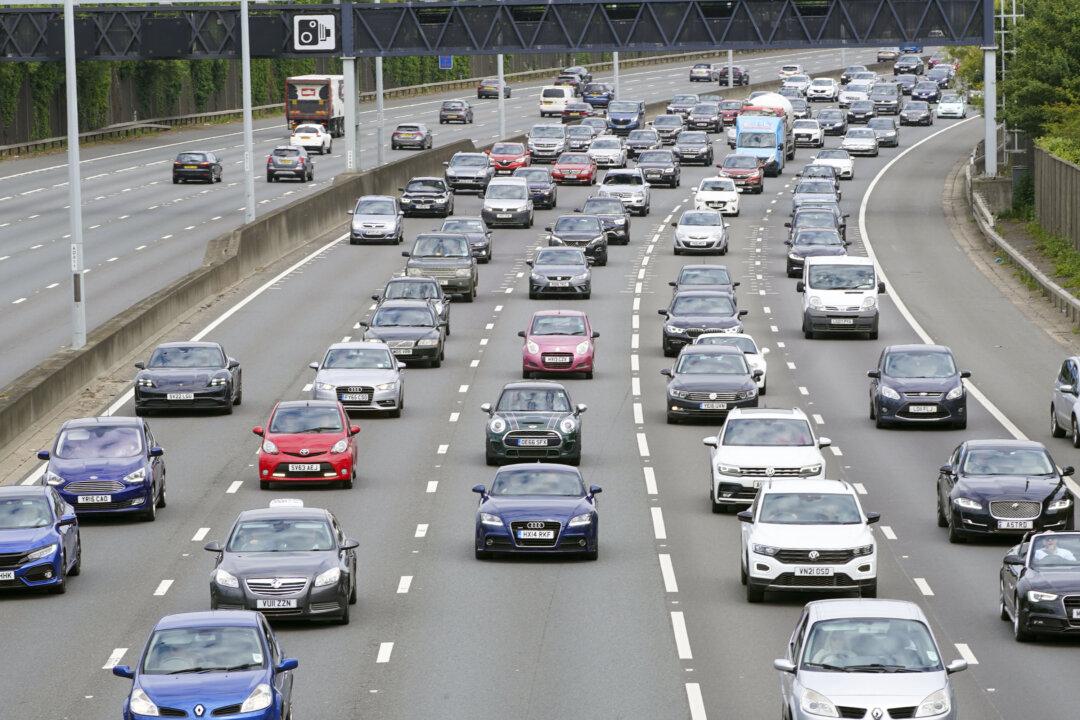A 39 percent increase in fraudulent motor insurance claims worth millions of pounds was recorded last year, leading insurer Aviva said on Wednesday.
The company said it had uncovered more than 11,000 suspect claims worth £116 million that were made in 2023. This is the equivalent of 30 bogus claims a day with a value of £318,000.
The insurer reported a surge in fraudulent claims for minor injuries suffered in road traffic accidents and for damage to motor vehicles.
The most popular target for fraudsters, motor injury fraud, accounted for 35 percent of all bogus claims Aviva detected. The insurer has been dealing with increasing numbers of fraud injury claims, which grew by 19 percent last year and were worth more then £23 million.
Aviva reported than £6 million worth of bogus claims were based on scams over personal damages and injuries that did not occur.
Third parties, who are not Aviva customers, file opportunistic claims, such as exaggerated injury claims stemming from a low-speed accident, such as a shunt in a car park. Aviva reported defending more than 400 such fraudulent or exaggerated bodily injury claims at trial.
Motor Damage and ‘Ghost Brokers’
According to Aviva’s data, fraud injury and vehicle damage claims represented the majority of the fraud. Last year, fraudulent motor damage claims rocketed by 123 percent, the insurer said.The focus of organised whiplash fraudsters turned to motor damage claims, following the Whiplash Reform Programme that came into effect in 2021, Aviva said.
Under the reforms, individuals making a bodily injury claim below £5,000 would not have their legal fees covered by the insurer. They would also need to present medical evidence for all future whiplash claims.
To avoid passing the cost of fraud to its customers, Aviva has invested in “robust counter-fraud” tools, said Mr. Ward.
“This investment has improved our ability to detect fraud across all lines of business and has contributed to the steep rise in the number of fraudulent claims we detected last year – particularly in motor, where exaggerated claims for damage have rocketed,” he added.
The insurer also warned about the dangers of so-called “ghost broking” in motor insurance.
Ghost brokers are fraudsters who pretend to be genuine insurance brokers to sell fake car insurance. They buy insurance policies from legitimate insurance companies using false information about the customer to acquire cheaper insurance.
A poll by the Association of British Insurers (ABI) showed that among those who have heard of online insurance fraud, 90 percent knew nothing about ghost broking.
Commenting on the issue, Detective Chief Inspector Tom Hill from the City of London Police’s Insurance Fraud Enforcement Department, said in a statement, “People who buy motor insurance from ghost brokers often don’t know they’ve paid for a policy that isn’t worth the paper it’s been printed on.”
Deals offered by ghost brokers can often be found online and on social media.
“Online insurance scams are widespread and are becoming increasingly sophisticated, so it’s really important to stay cyber savvy and know the difference between a real deal and one that shows signs of something not being quite right,” said Ursula Jallow, director at the Insurance Fraud Bureau.
ABI’s head of fraud and financial crime, Mark Allen, has warned the scammers pray on people when they’re at their most vulnerable and hit by cost-of-living pressures.
Aviva also reported that customers are often misled by accident management companies using spoof ads, into thinking they are contacting their insurer.
“The trouble arises when the at-fault insurer challenges the inflated costs presented by the CMC or AMC. The claims company will then pressure the customer into paying, as they will have signed contracts obliging them to pay if the repair, credit hire and other costs can’t be recovered. These costs are frequently in the tens of thousands of pounds,” the insurer said.







